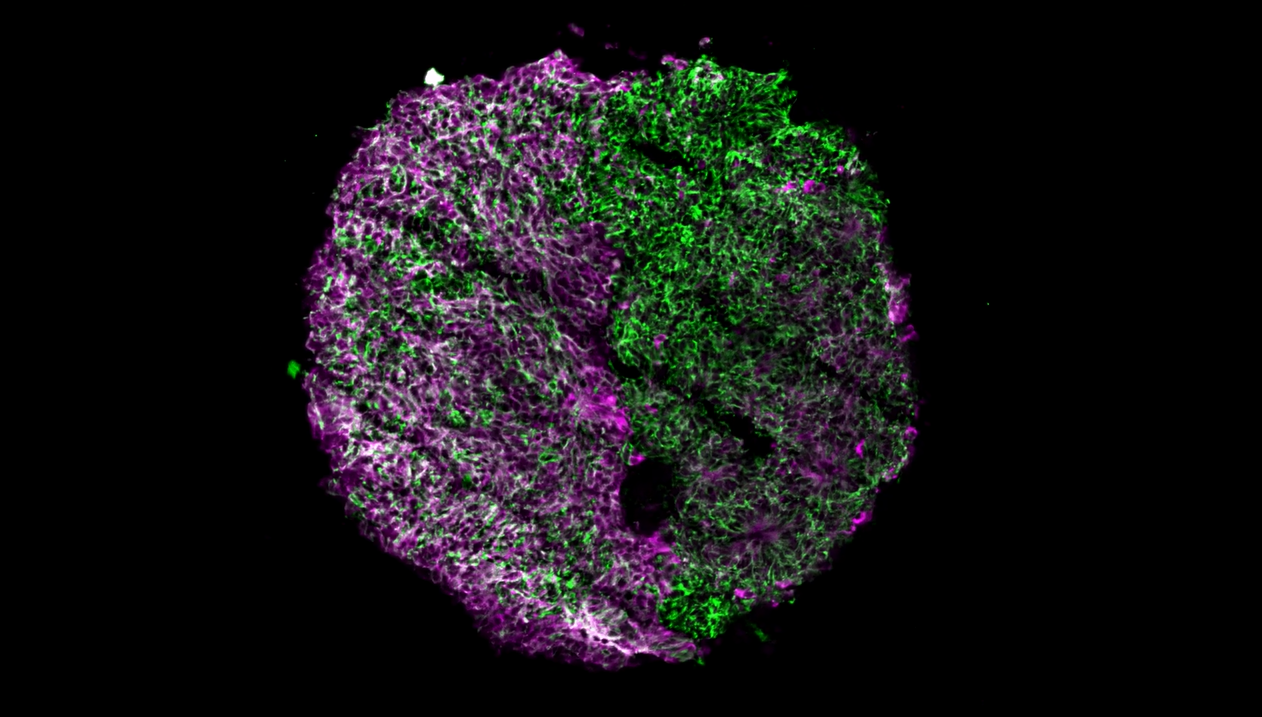Brain Organoids – Medical Benefits and Ethical Boundaries
Brain organoids are gaining increasing importance in biomedical research. These three-dimensional cell structures, cultivated from human stem cells, enable a better understanding of neurodegenerative diseases such as Alzheimer’s or Parkinson’s. They provide an innovative model for studying disease mechanisms and developing new therapies. At the same time, their use raises ethical questions—especially when they are further cultured in animal experiments to ensure their development under optimal conditions.
Professor Hans R. Schöler from the Max Planck Institute for Molecular Biomedicine discusses the opportunities and challenges of brain organoids in an interview with Dr. Roman Stilling, scientific advisor for the information initiative “Understanding Animal Testing.” Together, they examine the scientific benefits and ethical boundaries of this innovative method.
The video was produced by BIOCOM Interrelations GmbH on behalf of the German Research Foundation (DFG) and the initiative “Understanding Animal Testing,” specializing in scientific communication.

